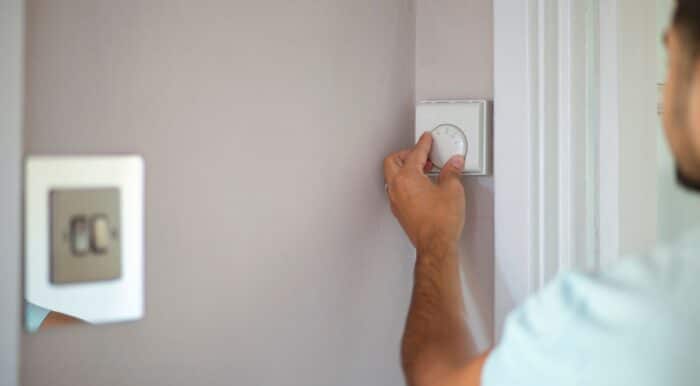A large portion of our family budgets goes onto our energy bills. Here at Eclipse Energy, we want to help you to reduce your energy bills as we head into Autumn and Winter 2023.
There are a few changes you can make around the home to help cut your energy use and therefore reduce your energy bills.
Below are some tips to save energy in your home. The estimated figures shown in the list below are from the Energy Saving Trust figures to illustrate the potential savings you could make.
Top 11 ways to save energy in your home

1. Don’t leave appliances on standby
Simply turning off appliances at the plug can save an average of £30 per year. Consider smart plugs or timer plugs to schedule turning appliances off. Do read our recent article about the worst appliances to leave on standby.
2. Try a Smart Thermostat
Using a Smart thermostat allows you to make your heating more efficient by only heating the rooms that you are using. Smart thermostats learn the time it takes to heat a room so they can work very efficiently to keep your home warm and cosy for less. Plus you can control them with your phone so you can set them whilst out to be warm by the time you get home. By installing room thermostats, programmers and thermostatic radiator valves you could save on average £75 per year.
3. Turn down the heat
Turning down your heating by just one degree could save you up to £80 per year. Read our Energy Savings Tips to find out more about ideal temperatures to save money on your energy bills.

4. Upgrade to more efficient appliances
Next time you need to replace an appliance, make sure you consider the energy efficiency when choosing your replacement. An A+++ washing machine will use £65 less energy than an A+ over its 11-year product lifespan. Additionally, an A+++ fridge freezer will give you a saving of £320 over it’s lifetime compared to an A+ model.
5. Is it time for a new boiler?
Upgrading your boiler to an A-rated condensing boiler with a programmer, room thermostat and thermostatic radiator controls can save you hundreds per year. For example based on March 2019 fuel prices, a detached house upgrading from a G-rated boiler may see a saving of around £300 per year.
6. Wash clothes at lower temperatures
Try washing at 30 degrees instead of 40 degrees and if possible reduce the number of cycles per week. Each cycle you can drop will reduce your energy bill by £5 per year.
7. Try not to waste water
By swapping to a more efficient shower head you could be saving as much as £18 per person per year. Even more if you have a water meter. Get a shower timer to reduce your showers by 1 minute each time, which could save an extra £7 per person, per year. That’s £100 per year for a family of 4 for showers alone.
Additionally, if you don’t have a dishwasher, do your washing up in a bowl rather than using a running tap – and you could save £25 per year!
8. Get double or triple glazing
A lot of heat can be lost from your windows and this is especially the case if you have single glazed windows. A semi-detached home could save £110 per year by upgrading from single glazing to A-rated double glazing.
9. Get rid of those draughts
You can see significant heat loss from cold draughts getting into your home. Investing in draught excluders and draught-proofing kits will help you save energy and make your home feel cosy.
Common causes of draughts include seal cracks in floors and skirting boards, letterboxes and unused chimneys. Removing these draughts could save up to £35 per year.

10. Insulate your roof
Insulating your roof can save you around £135 on your energy bills each year. Roof insulation typically costs several hundreds of pounds to install but you could be eligible for free or partially-funded insulation with the ECO4 or Great British Insulation Scheme. Click here to find out more.
11. Keep an eye on usage
Keep a watch on what you are using as there may be small changes in your habits that could give you big savings on your energy bills without much impact on your lifestyle.
We hope these tips will help you save on your bills over the coming Autumn and Winter months and below are a couple more articles you may be interested in to help reduce your bills in the coming months: